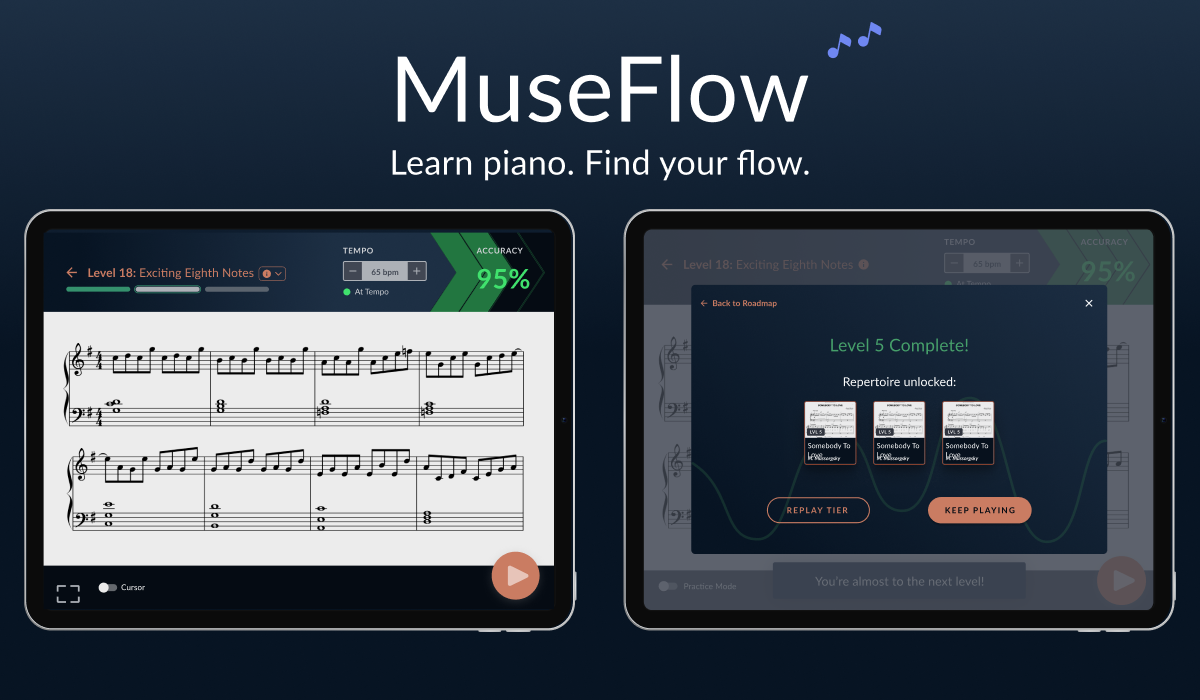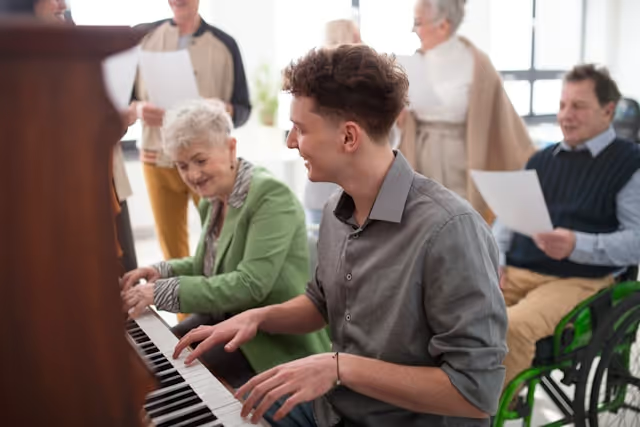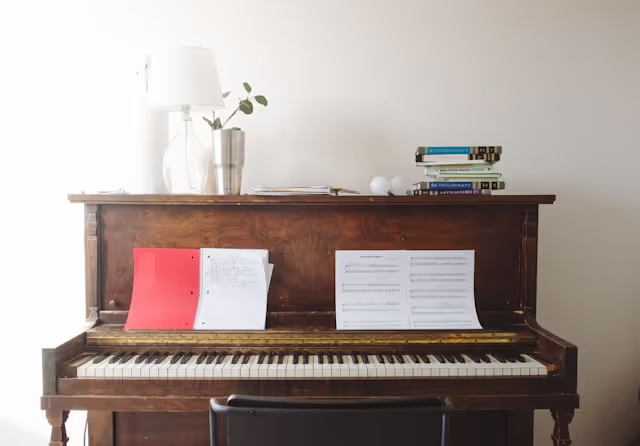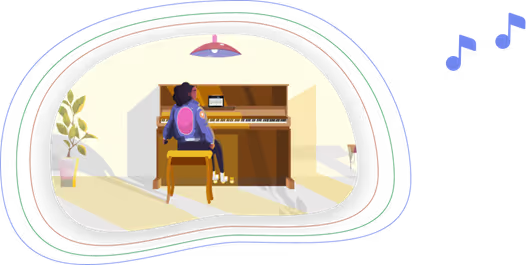Gamified Piano LessonsUsing The Cutting-Edge App Alongside Traditional Piano Teachers
For centuries, piano teachers have been fighting an uphill battle. Not against students, but against the limitations of traditional teaching methods.
What if gamified piano lessons could finally give teachers the tools they need to unleash their true potential? And, unleash the true potential of their students?
The world of piano lessons gamified isn't about replacing teachers. Far from it! it's about transforming them into the musical mentors they were always meant to be.
New technology can elevate both teaching and learning to extraordinary new levels of mastery.
MuseFlow offers the best gamified lessons to learn the piano.
The Hidden Struggle of Traditional Piano Teaching
Piano teachers are passionate about music, but traditional methods often force them into roles that don't match their strengths. Instead of inspiring creativity and musical artistry, they often find themselves stuck in the weeds of mechanics.
Repeating Basic Technical Corrections
Much of lesson time gets eaten up by correcting note accuracy, timing, and finger placement. These fundamentals are important, but they can be taught and reinforced more efficiently with structured tools or software. That way teachers can focus on interpretation, expression, and building confidence instead of drilling the same mistakes week after week.
Limited Feedback Opportunities
With perhaps only one lesson per week, students are often left on their own for six days. Even the most motivated players can slip into bad habits without realizing it. Teachers may feel frustrated that they can only correct issues after the fact, instead of supporting students in real time as they practice. This is accentuated when you consider the rise of providing music lessons remotely over Zoom or another music instruction platform.
One-Size-Fits-All Constraints
Every student learns differently. Some need more repetition, others thrive with variety. Traditional methods can make it hard for teachers to adapt in the moment, which means some students feel rushed while others feel held back. This mismatch can dampen motivation and slow progress, even with a talented teacher. By shifting the basics to smarter systems, teachers can spend more of their time where their passion and expertise shine: bringing music to life, helping students connect emotionally to what they’re playing, and nurturing the artistry that drew them to teaching in the first place.
This is why so many students ask, how do I avoid getting bored while learning piano?. The answer lies in freeing teachers to focus on what makes music truly magical.
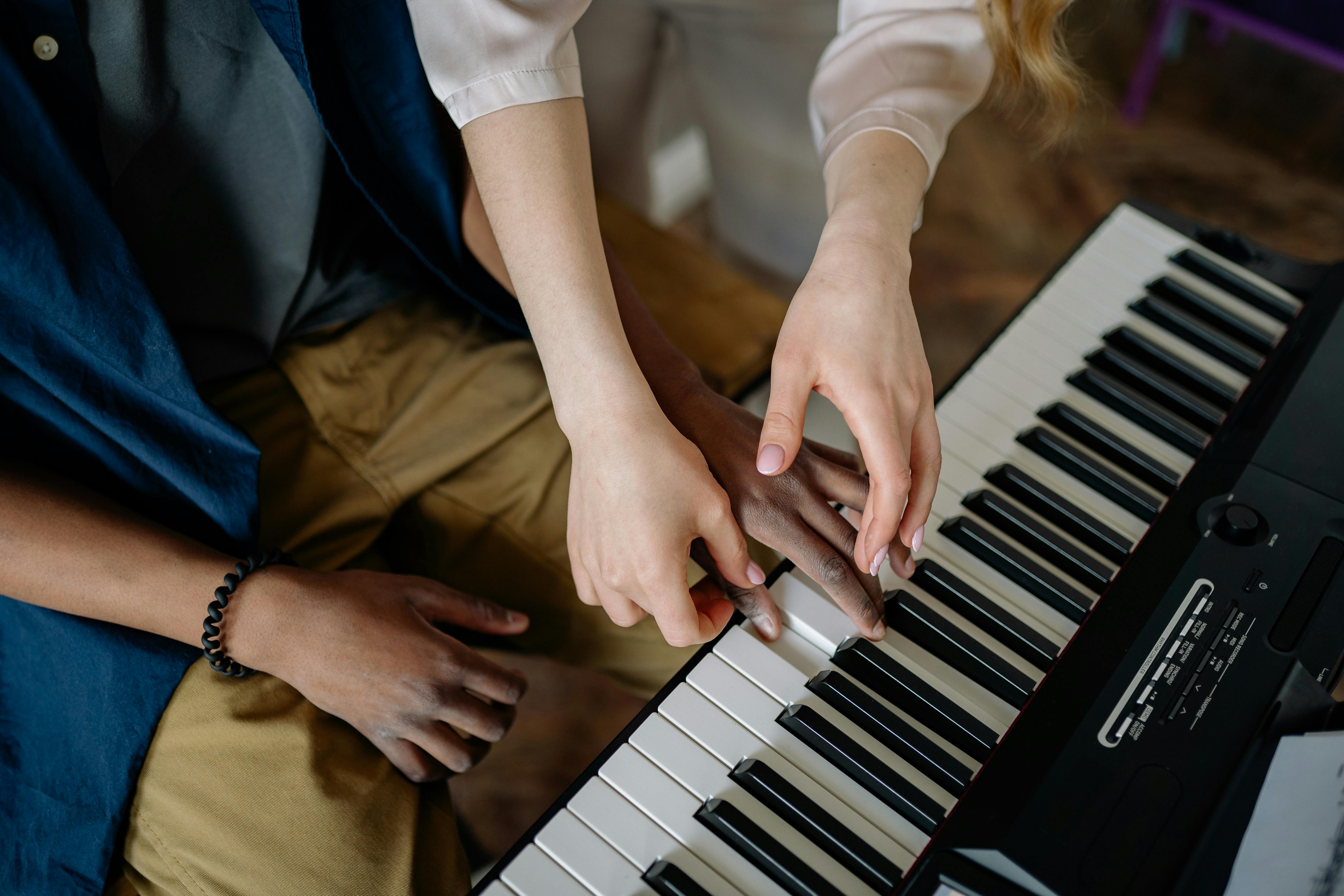
The Revolution: How Gamified Piano Lessons Transform Teaching
Here's what many people get wrong about gamified piano lessons: they're not about replacing human teachers. Using gamification in a sight reading app is what unleashes teachers' true potential and passion.
Think of it this way: when an app like MuseFlow takes care of the technical fundamentals such as timing, note accuracy, and finger positioning, teachers are freed to focus on the aspects of music that make it truly magical. Instead of drilling scales or correcting the same rhythm errors, they can spend time shaping a student’s phrasing, drawing out color in a piece, or unpacking the dynamics that give a ballad its emotional weight.
This shift changes the whole lesson dynamic. Students come in with the basics already reinforced, so the conversation can move toward artistry and expression. Teachers can encourage risk-taking, interpretation, and storytelling through music rather than repeating the same corrections week after week. It also makes lessons more inspiring for both sides because students feel like real musicians sooner and teachers get to pour their passion into the parts of teaching that are most rewarding.
Over time, this approach does not just create better pianists. It creates more engaged, motivated learners who see practice as a chance to explore, not just correct mistakes. That is where lasting growth and true love for music take root.
There is a fabulous harmony (pun intended) where technology handles the repetitive fundamentals and teachers become what they were always meant to be: musical mentors and artistic guides.
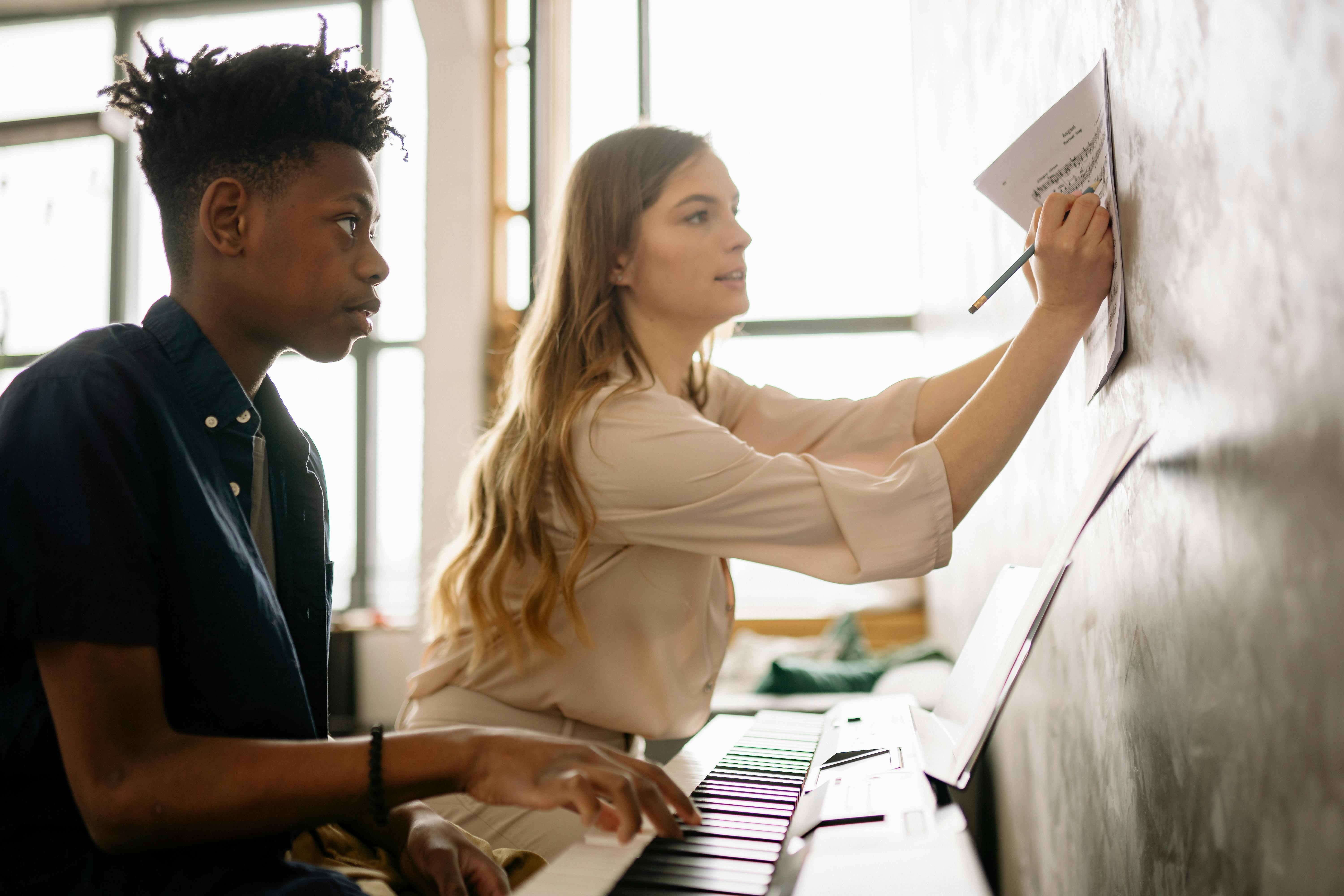
When students arrive at lessons having practiced with piano lessons gamified, something remarkable happens. Instead of spending time correcting basic technical errors, teachers can immediately dive into the artistry of music-making.
Gamified Piano Lessons Amplify a Piano Teacher's Impact
The beauty of gamified piano lessons lies not in replacing human expertise, but in amplifying it. Students develop solid technical foundations through consistent, patient AI instruction, while teachers provide the passionate guidance that only humans can offer.
This is particularly evident in sight-reading development, which becomes the easiest way to read piano notes for beginners when supported by both gamified practice and human mentorship.
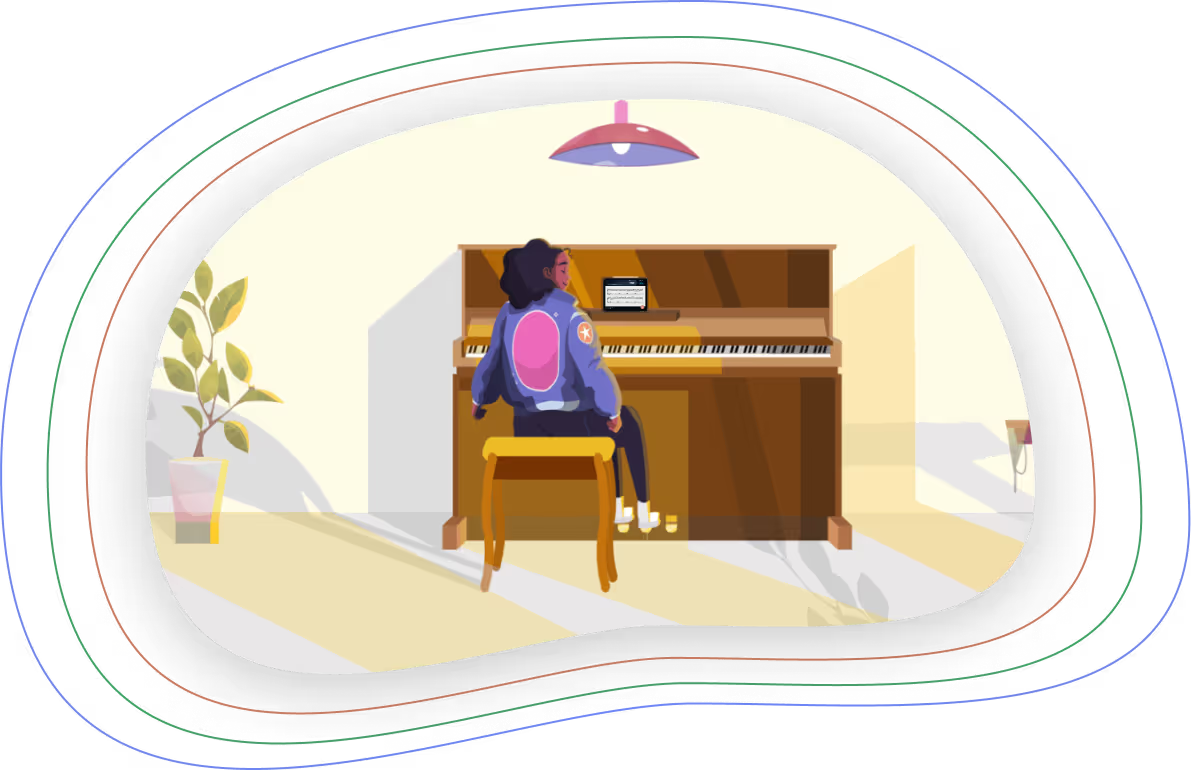
Research Shows the Power of Gamification in Piano Lessons
The motivational effects of gamification of piano instruction and practice study tracked piano students and found something promising: students using a gamified system mastered nearly 3 times more technical exercises than those stuck with traditional methods.
Improvements included: proper timing, accurate notes, and correct finger positioning. When students rated their experience, they gave the gamified approach nearly 8 out of 10 for effectiveness. The best part? Students described feeling "happy," "excited," and "confident" during practice instead of "bored" or "frustrated."
MuseFlow: Elevating Teachers to New Heights
MuseFlow represents the perfect example of how to gamify piano lessons while elevating human teachers. By handling the technical groundwork, MuseFlow transforms piano teachers from technical instructors into musical mentors.
With future piano lesson tools like MuseFlow handling the technical groundwork, piano teachers become what they were always meant to be: musical mentors and artistic guides. Students arrive at lessons with solid technical foundations, ready to explore the heart and soul of music-making.
The future of piano education isn't about technology supplanting teachers. It's about creating a beautiful harmony that elevates both technology and humanity to create something better than either could achieve alone.
Ready to see how piano lessons gamified can transform your teaching or learning experience? The partnership between human artistry and technological precision is creating the most effective piano education the world has ever seen.


.svg)

.jpg)

